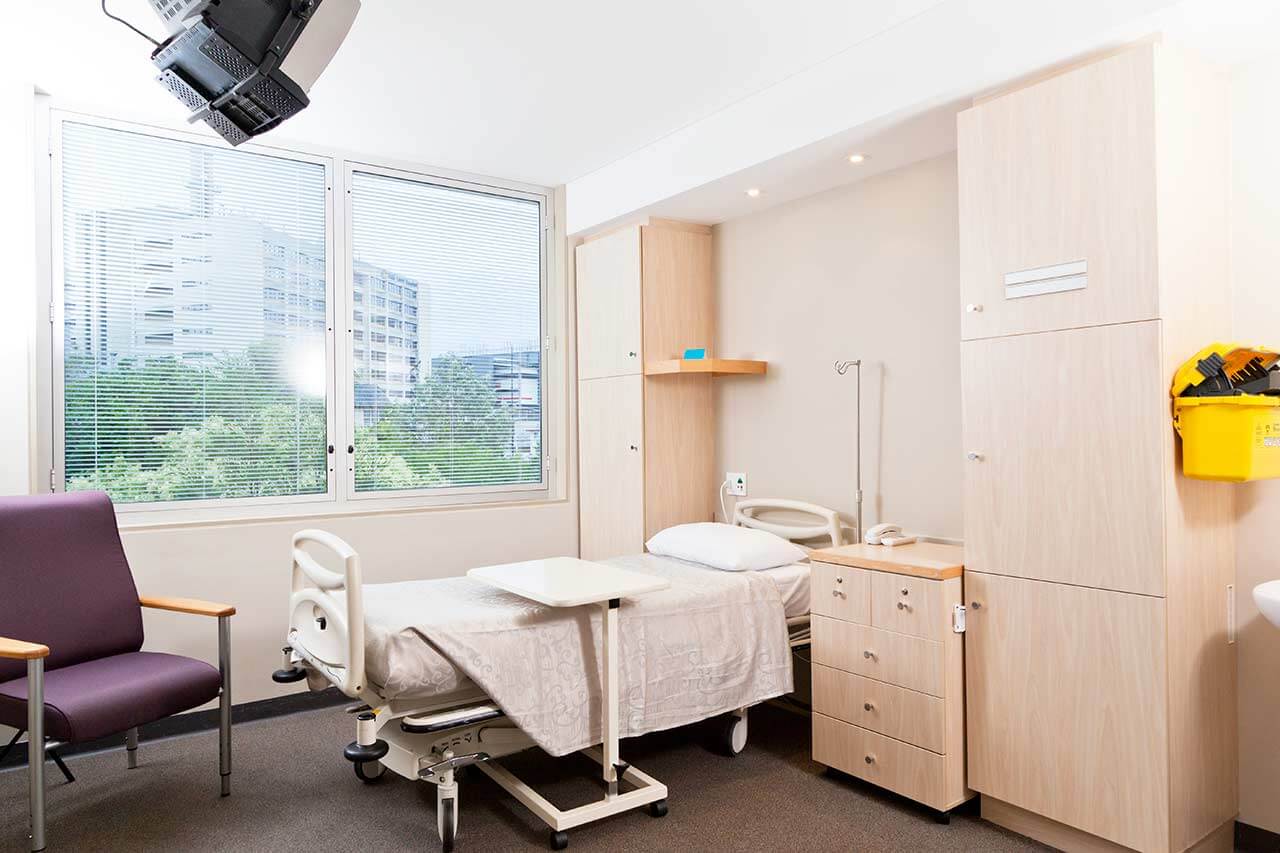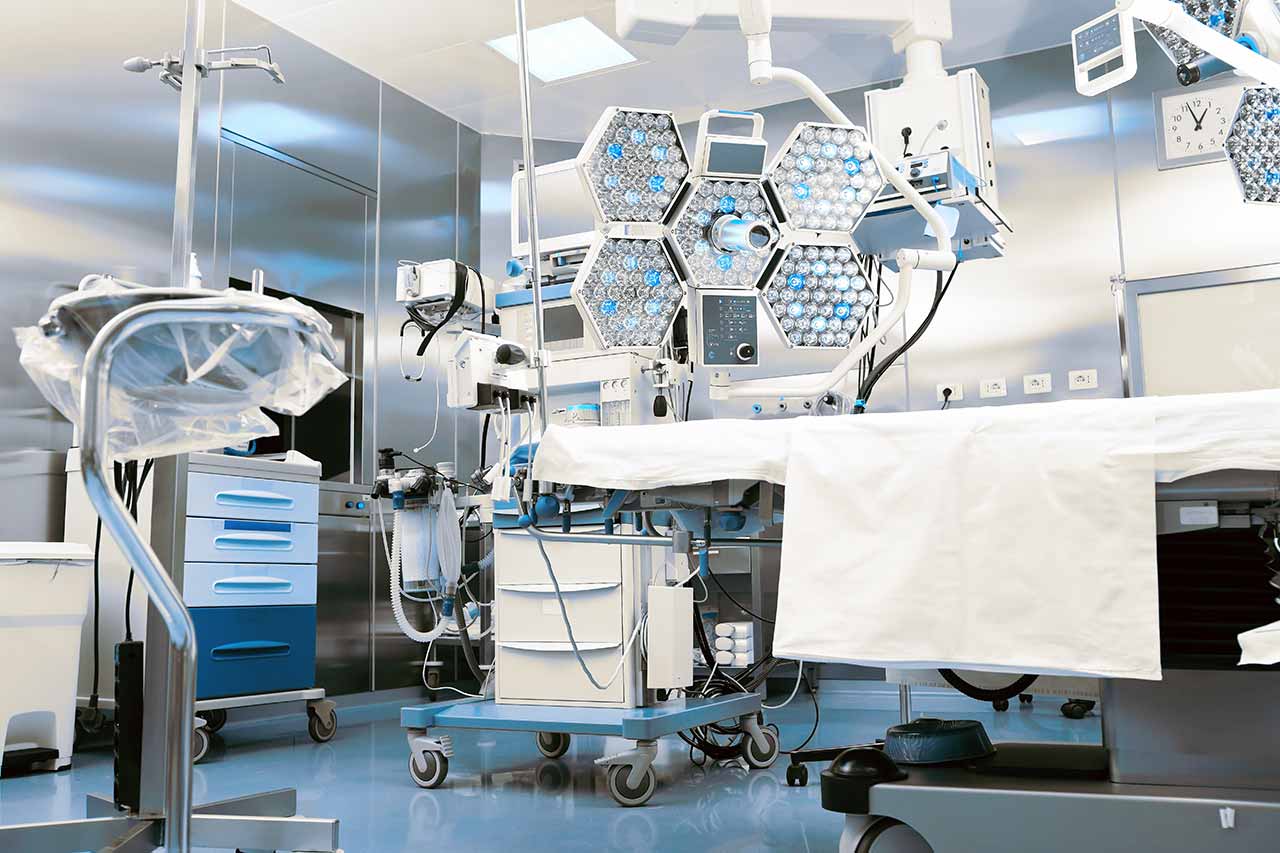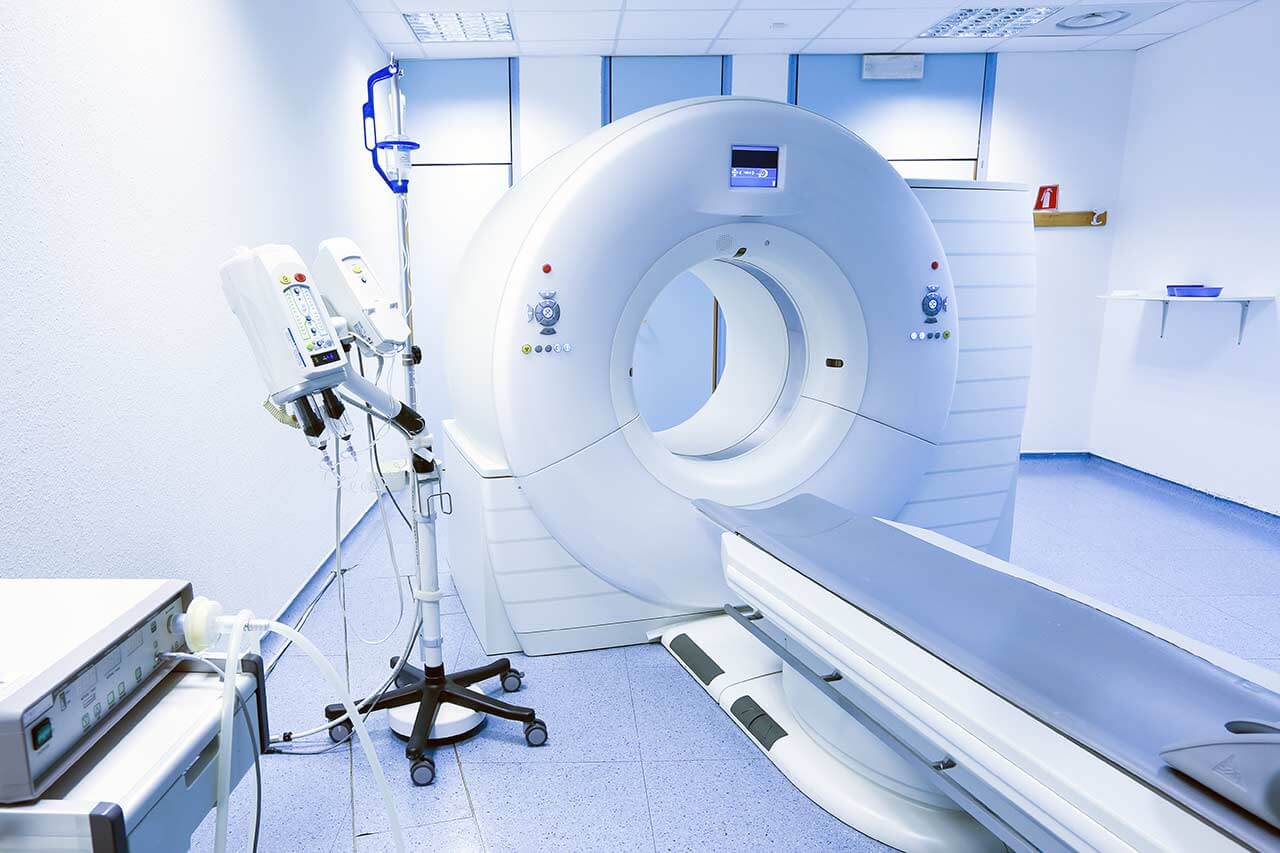
The program includes:
- Initial presentation in the clinic
- clinical history taking
- review of medical records
- physical examination
- laboratory tests:
- complete blood count
- biochemical blood test
- general urine analysis
- tumor markers (Chromogranin A (CgA))
- inflammation markers (CRP, ESR)
- blood coagulation analysis (aPTT, PT, INR)
- ultrasound of the abdomen
- gastroscopy and colonoscopy with biopsy
- CT/MRI of the abdomen (if clinically indicated, additional cost is 650/1200€)
- capsule endoscopy (if clinically indicated, additional cost is 1200€)
- differential diagnosis with other gastroenterological diseases
- nursing services
- consultation of related specialists (tumor board)
- treatment by chief physician and all leading experts
- explanation of individual treatment plan
Required documents
- Medical records
- MRI/CT scan (not older than 3 months)
- PSMA PET/CT (if available)
- Biopsy results (if available)
Service
You may also book:
 BookingHealth Price from:
BookingHealth Price from:
About the department
The Department of Gastroenterology and Hepatology at the Beta Clinic Bonn offers the full range of modern diagnostics and treatment for patients with diseases of the gastrointestinal tract, liver, pancreas, gallbladder, and biliary tract. Of particular interest is the treatment of functional disorders of the digestive organs, metabolic disorders, and gastrointestinal malignant tumors. The department's doctors have state-of-the-art equipment for high-precision examinations, including endoscopic equipment. The specialists at the medical facility regularly perform diagnostic and therapeutic endoscopic procedures, demonstrating excellent results. Patients most often receive medical care on an outpatient basis, but, if necessary, treatment may be provided on an inpatient basis. The department's team of gastroenterologists closely cooperates with specialists from related medical fields, such as abdominal surgeons, oncologists, and radiologists. The department strictly meets current clinical protocols, so patients can count on effective and safe treatment. The department is headed by Dr. med. Peter Lüsebrink.
The department admits patients with various gastrointestinal diseases. The most common of these include gastritis, peptic ulcer disease, gastroesophageal reflux disease, diverticular disease, and inflammatory bowel disease (ulcerative colitis and Crohn's disease). Of particular interest to the department's specialists is the provision of medical care to patients with benign and malignant gastrointestinal neoplasms. In addition, the department's team of doctors specializes in the treatment of liver pathologies, including hepatitis, cirrhosis, steatohepatitis, gallstone disease, cholangitis, cholecystitis, etc.
The department's specialists are convinced that high-quality diagnostics allow them to provide optimal treatment. Gastroenterologists therefore pay special attention to a comprehensive examination that includes studying the patient's medical history, carrying out laboratory tests, ultrasound scans (CT and/or MRI scans can also be performed if required), and endoscopic examinations. Today, endoscopy is an indispensable and most informative diagnostic method in gastroenterology. Gastroscopy is one of the most requested diagnostic procedures in the department. The examination allows doctors to assess the condition of the esophagus, stomach, and duodenum from the inside using a gastroscope, which is inserted through the mouth. Gastroscopy may be indicated for patients with chronic abdominal pain, heartburn, belching, a bitter taste in the mouth, nausea and vomiting, a lack of appetite, sudden weight loss, etc. During the diagnostic procedure, the doctor may detect polyps in the stomach, stenosis, bleeding, or other pathological changes. As a rule, in such cases, the specialist immediately performs the necessary therapeutic manipulations.
The team of the department's doctors has successful experience in endoscopic treatment of gastrointestinal diseases. For example, esophageal or colon stent implantation is often performed here. Stent implantation is most often necessary for stenosis caused by cancer. The essence of the procedure is the implantation of a stent (a special metal structure resembling a frame) into the area of narrowing or obstruction in the esophagus or colon and its placement in the required position. At the final stage of the procedure, the stent opens, thereby eliminating the stenosis. The therapeutic manipulation takes about 1 hour and is usually carried out in a state of medical sleep so that the patient does not experience any pain or discomfort. The results of endoscopic treatment for gastrointestinal stenoses are comparable to those of surgery, while the method excludes tissue dissection and is absolutely safe for the patient.
The department performs many other endoscopic therapeutic procedures, including the removal of benign and malignant neoplasms of the digestive organs, the removal of bile duct stones, the removal of foreign bodies from the digestive tract, the arrest of bleeding (hemostasis), and probing procedures for enteral nutrition.
The first-line treatment for liver disease is the intake of individually prescribed drugs. The department's doctors most often combine hepatoprotectors, choleretics, and cholelitholytic agents. An important role is also played by lifestyle modifications: the exclusion of fatty and fried foods from the diet, the refusal of alcohol, smoking cessation, etc. In complex cases, surgery may be required. A treatment regimen is developed for each patient individually, based on his clinical case.
The department's range of diagnostic and therapeutic services includes:
- Diagnostics
- Advanced laboratory diagnostics, including blood, urine, and stool tests
- Breath tests
- Electrocardiogram (ECG)
- Ultrasound scans and ultrasound-guided punctures
- Cancer screening
- Comprehensive differential diagnostics for detecting the causes of abdominal pain, diarrhea, constipation, loss of appetite, nausea, weight loss, heartburn, and blood in the stool
- Endoscopic examinations
- Gastroscopy
- Colonoscopy
- Endoscopic retrograde cholangiopancreatography
- Capsule endoscopy
- Treatment
- Drug therapy
- Endoscopic therapeutic procedures
- Removal of gastrointestinal tumors
- Removal of bile duct stones
- Removal of foreign bodies from the gastrointestinal tract
- Stent implantation for esophageal and colon stenosis
- Hemostasis (arrest of internal bleeding in the gastrointestinal tract) with the help of special clips, drug injections, and ligation
- Percutaneous endoscopic gastrostomy
- Other medical services
Curriculum vitae
Dr. med. Peter Lüsebrink is a highly qualified gastroenterologist with long experience. For many years, the specialist has been engaged in the diagnostics and treatment of gastrointestinal diseases, as well as liver, pancreatic, gallbladder, and bile duct pathologies. Of particular interest to Dr. Lüsebrink is medical care for patients with functional disorders of the digestive system, metabolic disorders, and cancers. The specialist has successful experience in diagnostic and therapeutic endoscopic procedures.
Photo of the doctor: (c) Beta Klinik Service-, Verwaltungs- und Forschungs- GmbH
About hospital
The Beta Clinic Bonn is a modern private healthcare facility with 20 specialized departments. In addition, the clinic cooperates with 30 independent doctors of various specializations, most of whom have their own private practices. The doors of the clinic first opened for patients in 2008. Since that time, the medical facility has expanded significantly and achieved outstanding success. It harmoniously combines state-of-the-art equipment, high levels of competence among doctors, and comfortable infrastructure. All these possibilities make it possible to provide patients with high-quality medical care in accordance with modern European standards. The work of the medical team at the clinic is based on the following principle: "Our task is to take care of the health of patients." The clinic provides comprehensive treatment, taking into account the individual needs and wishes of each patient.
The hospital has an excellent diagnostic base: rooms for instrumental diagnostics, imaging tests, and endoscopic procedures. The medical complex also has in-house laboratories with advanced equipment. The clinic's doctors have the opportunity to perform comprehensive diagnostics in the shortest possible time and detect the slightest pathological changes in the work and structure of the internal organs. When considering the diagnostic results in complex clinical cases, physicians from related specialties are often involved in the process so that all important aspects are taken into account when developing a treatment regimen for a patient.
The therapeutic options at the clinic are quite diverse. At the same time, doctors always strive to keep pace with innovations, carrying out treatment using the most modern and sparing techniques. The operating rooms at the clinic have advanced computer equipment, navigation devices, monitoring systems, surgical microscopes, special tools, and equipment for laparoscopic and endoscopic interventions, as well as laser systems. The clinic also has an in-house Rehabilitation Center, where patients undergo physiotherapy and therapeutic exercises.
The clinic is expanding more and more every year. Innovative developments in diagnostics and treatment are immediately introduced here. It is worth noting that the clinic is a pioneer in Germany in advanced laser treatment for epilepsy. The therapy was implemented into clinical practice in 2019 and has been successfully applied here since then.
Photo: (с) depositphotos
Accommodation in hospital
Patients rooms
The patients of the Beta Clinic Bonn live in comfortable single rooms. Each room has a separate bathroom with a shower and toilet. The rooms have a modern design and meet the standards of a high-class hotel. For the convenience of patients, the rooms are equipped with electrically adjustable beds, air conditioning, satellite and Internet TV, a telephone, and Wi-Fi.
The clinic also offers accommodations in enhanced comfort rooms. Such patient rooms have a more refined design. In addition, they are very spacious. Enhanced comfort rooms have a minibar, daily fresh fruit, and a special dinner menu. Most windows of the clinic's patient rooms offer a beautiful view of the Rhine River and beautiful green landscapes.
Meals and Menus
The patients of the clinic are offered balanced, delicious food: a buffet breakfast, a hearty three-course lunch, and a light dinner. Also, for dinner, one can taste special offers from the chef at the hospital restaurant, which, if desired, can be served to the patient room.
Further details
Standard rooms include:
Accompanying person
Your accompanying person may stay with you in your patient room or at the hotel of your choice during the inpatient program.
Hotel
You may stay at the hotel of your choice during the outpatient program. Our managers will support you for selecting the best option.
In the immediate vicinity of the clinic is the Kameha Grand, a five-star hotel. The exterior and interior of the hotel impress with their beauty. In addition, the hotel is famous for its excellent service. The hotel is located on the banks of the Rhine and offers picturesque views from its windows.





